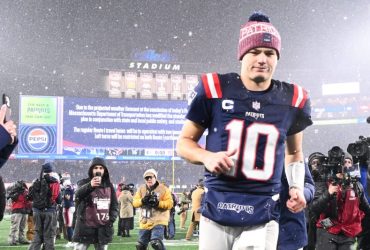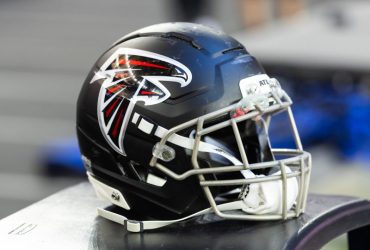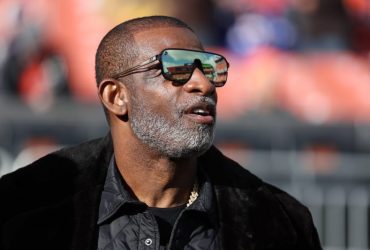Like Tim Beck doesn’t have enough to sort through this offseason. Let’s throw something else on his plate.
So I called the Coastal Carolina football coach, and we talked briefly about hot dogs and popcorn and nachos — and how through an innovative marketing plan, they’re all free at Chanticleers home games in 2025.
“It’s a great idea to reward our fans,” Beck says.
It was also, I soon found out, a peek into something of greater importance. An opportunity to show the reality of college football at the Group of Five level of the Bowl Subdivision.
Or as they’re more commonly known: the have-nots.
Hold on for the ride, everyone. Here we go.
Beck’s leading rusher, Braydon Bennett, accounted for 13 touchdowns last year and transferred to Virginia Tech.
His best edge rusher, Clev Lubin, had 9½ sacks in 2024 and transferred to Louisville. Deamontae Diggs, another talented edge rusher who had five sacks, transferred to Florida State.
He best interior defensive lineman, Will Whitson, transferred to Mississippi State. Nearly 30 other players from the 2024 roster hit the transfer portal in the now era of free player movement.
Beck has new offensive and defensive coordinators, and a four-way battle for the starting quarterback job. Because, of course, his starting quarterback last season (Ethan Vasko) transferred to Liberty.
He still doesn’t know the framework of a salary pool for the defacto pay for play system that could be formally approved after a Monday hearing in the courtroom of U.S. District judge Claudia Wilken. The agreement allows FBS schools to spend as much as $20 million-23 million on all athletes.
Most power conference schools are expected to spend as much as 75-80 percent of the final revenue-sharing figure on football. At Coastal Carolina, as with just about every other Group of Five school, they’ll be fortunate to be able to spend half of the allowable figure — on all athletes.
It’s roster management and accounting and budgeting, and new NCAA rules and new NCAA football committee rules. Every single move has multiple sticky tentacles that can’t be seen until you’re stung.
“It’s a flood of things,” Beck said. “Every corner you turn, you’re running into something else.”
Exhibit A: sideline communications. The rules committee decided last season that FBS schools could use helmet communications (like the NFL) and computer tablets during games.
One problem: someone has to pay for it.
The NCAA, despite its multi-billion dollar media rights deal for March Madness (among other revenue generation), isn’t gifting helmet communications and iPads for everyone. You want it? Find the funds in your budget.
And speaking of budgets, the NCAA also recently allowed unlimited recruiting visits for athletes. What was once five defined official visits has turned into those with the most money get the most official visitors.
I know this is going to shock you – like just about everything else that has unfolded in the new player-friendly environment – there’s a hole in the process with which players can take advantage.
Earlier this year, Beck had a couple of recruits on campus and found out both had multiple offers from power conference schools. Why would anyone with offers from Michigan and Georgia and Tennessee be interested in Coastal Carolina?
“They just admitted it,” Beck said. “They were here for the trip to Myrtle Beach.”
This is the trickle down of those fateful decisions made by the NCAA in the summer of 2021, moves coaches and administrators all warned of, but are all legally impotent to stop.
When the NCAA finally gave in on name, image and likeness deals, and simultaneously threw open the doors to free player movement, the creation of free agency with no salary cap was born. So was every possible unintended consequence.
And nearly every one eventually trickles down from the Power Four conferences to the Group of Five.
Beck was part of the process as the top assistant coach at three of the heaviest hitters in football: Ohio State, Texas and Nebraska. But once you’re knee-deep in that high-value, daily fight of win or walk, you can’t even recognize the Group of Five horizon line.
There’s no time to see what’s eroding underneath you, much less time to care.
If you think the $20 million-23 million “salary pool” is really a salary cap to promote competitive balance throughout FBS, I’ve got a $2 million-a-year private NIL job promoting Bob’s Bait and Tackle to sell you.
You know, the private NIL deals above and beyond the “salary pool” that will never, ever, be regulated. It’s not “fair” market value, it’s “free” market value.
Someone(s) in the NCAA should take a freshman Econ 101 class offered by all of their universities before trying to force “fair” market value into any conversation. And lose again in court.
“Fair” flew out the window in 2021, despite the NCAA knowing for months that multiple states had NIL bills that would become law in the summer of 2021. And did nothing about it.
Then complained when Congress – holy dysfunction, Congress – wouldn’t help them.
Meanwhile, the Pac-12 as we knew it is dead. The ACC now has an official end time of the early 2030s (that’s not far away), and the Big 12 is a juiced up Group of Five conference.
So yeah, Tim Beck doesn’t mind talking about free hot dogs and nachos.
“Our fans are very loyal, they support all of our programs,” Beck said. “That’s something that will never change.”
Amen to that.
Matt Hayes is the senior national college football writer for USA TODAY Sports Network. Follow him on X at @MattHayesCFB.



